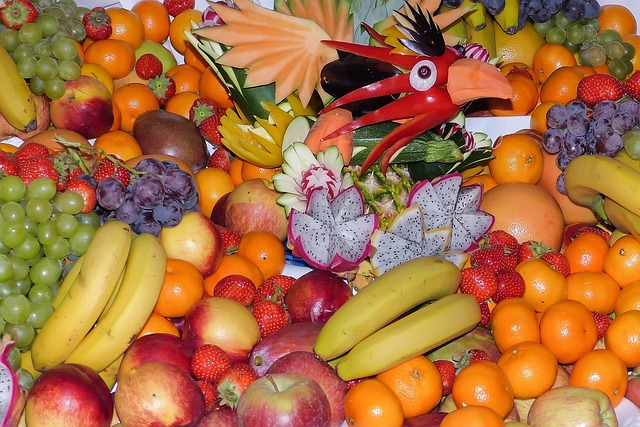
Table of Contents
In today’s modern lifestyle, we often get all types of fruits in supermarkets throughout the year. But just because fruits are available all the time, doesn’t mean they are at their best all the time. Eating seasonal fruits – fruits that naturally grow in a particular season – is one of the smartest and healthiest food habits you can develop.
In this article, we’ll dive deep into why seasonal fruits are best for your body, how they improve your health, the natural benefits they offer, and why nature truly knows best when it comes to our food.
What Are Seasonal Fruits?
Seasonal fruits are the fruits that are naturally ripe and ready to eat during a particular time of the year. For example:
- Mangoes in summer
- Apples in autumn
- Oranges in winter
- Watermelons in hot weather
They grow in specific weather conditions, without the need for artificial chemicals or storage techniques to keep them fresh. Nature creates the perfect fruits for each season — all we have to do is eat them!
🍊 2. Seasonal Fruits Are Packed with Nutrients
a. Better Nutrient Value
Fruits grown in their natural season are fresher and richer in nutrients like vitamins, minerals, and antioxidants.
- Example: Winter oranges are packed with vitamin C, which helps fight off cold and flu during the chilly season.
- Example: Summer fruits like watermelons help cool your body and keep you hydrated.
Out-of-season fruits are often picked early and artificially ripened, which means they lose many of their natural nutrients.
🍇 b. Natural Ripening = Better Health
Seasonal fruits ripen on the plant or tree, which helps them develop their full nutrient potential. Artificial ripening (used for off-season fruits) often uses chemicals that reduce the health benefits of the fruit.
💪 3. Your Body Is in Sync with the Seasons
Believe it or not, your body changes with the seasons, and the foods you eat should too.
☀️ a. Summer Needs Hydration
In hot months, your body loses water through sweat. That’s why seasonal fruits like watermelon, cucumber, and lychee are full of water content — they naturally rehydrate you.
❄️ b. Winter Needs Immunity
In cold weather, your body is more prone to infections. Winter fruits like oranges, guavas, and amla are rich in vitamin C, which boosts your immune system.
🍂 c. Monsoon Needs Clean Digestion
Fruits like papaya and pomegranate, available in the rainy season, are great for improving digestion and preventing stomach infections.
🌱 4. Fewer Chemicals and Preservatives
🍓 a. No Artificial Growth
Seasonal fruits are grown naturally, without forcing the plants to produce out-of-season. This means fewer chemicals and fertilizers are used.
b. Less Need for Preservation
Off-season fruits are often stored for long periods in cold storage or transported from far away. To keep them looking fresh, they are sprayed with preservatives and waxes, which may harm your health.
Eating seasonal fruits means you’re eating fresh, chemical-free produce, just the way nature intended.
🌎 5. Eco-Friendly and Sustainable
🚛 a. Less Transportation = Less Pollution
When you eat local, seasonal fruits, they don’t have to travel across countries or states. This reduces the carbon footprint and helps the environment.
❄️ b. No Need for Cold Storage
Storing fruits for long periods uses a lot of energy. Seasonal fruits don’t need this, so eating them helps reduce energy consumption and waste.
By choosing seasonal produce, you’re not only helping your health but also protecting the planet.
💸 6. Seasonal Fruits Are Cheaper
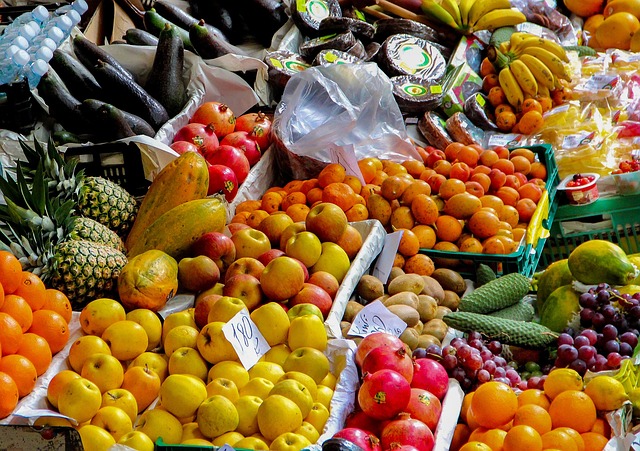
When a fruit is in season, it’s easily available in large quantities, which brings the price down. You’ll often find:
- Better deals at the local market
- Higher quality at lower prices
- More choices in fresh produce
On the other hand, off-season fruits are:
- Imported or artificially grown
- More expensive due to storage and transport
- Often less tasty and nutritious
So, eating seasonal is not only smart for your health but also for your wallet!
😋 7. Taste and Flavor Are Unmatched
Have you ever eaten a mango in December? It just doesn’t taste the same. That’s because:
- Seasonal fruits are naturally sweet, juicy, and flavorful
- Off-season fruits are bland and watery due to early harvesting and artificial ripening
Nature gives fruits the perfect balance of sugar, fiber, and water content when grown in season. That’s why they taste better and are more satisfying.
8. Helps with Better Digestion and Absorption
🍑 a. Fiber and Water Balance
Seasonal fruits often have the perfect combination of fiber and water, which supports good digestion and gut health.
- Summer fruits cool and cleanse the stomach
- Monsoon fruits prevent infections
- Winter fruits boost metabolism
b. Supports Gut Health
Natural, seasonal fruits are gentle on the stomach. They don’t cause bloating or gas and help maintain a healthy gut micro biome.
9. Supports Natural Detox
Seasonal fruits, especially those high in antioxidants, help your body flush out toxins naturally.
- Watermelon and cucumber help clean your kidneys in summer.
- Papaya and pomegranate help cleanse the liver.
- Guava and amla help in winter detox.
When you eat fruits in sync with your body’s seasonal needs, your detox process becomes natural and effective.
10. Great for Kids and Elderly
Kids and older adults often have sensitive digestion. Seasonal fruits:
- Are easier to digest
- Provide the exact nutrients needed for that time of year
- Are less likely to cause allergies or digestive issues
Adding seasonal fruits to the diet of growing children and aging parents can help:
- Build immunity
- Improve energy
- Support healthy digestion
11.List of Popular Indian Seasonal Fruits
🌸 Spring (Feb–Apr)
- Papaya
- Strawberries
- Pineapple
- Custard apple
☀️ Summer (May–July)
- Mango
- Watermelon
- Lychee
- Muskmelon
- Jamun
🌧️ Monsoon (July–Sept)
- Guava
- Pomegranate
- Pear
- Chiku (Sapota)
🍁 Autumn (Sept–Nov)
- Apple
- Banana
- Fig
- Grapes
❄️ Winter (Dec–Feb)
- Orange
- Amla
- Carambola (Star fruit)
- Dates
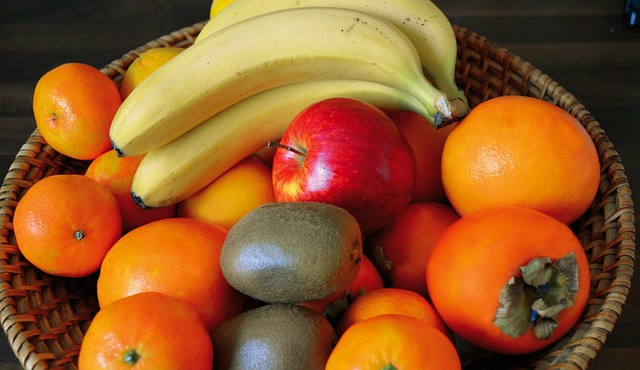
12. Why Do We Crave Certain Fruits in Certain Seasons?
Our bodies naturally adapt to seasonal changes. This includes:
- Craving watery fruits in summer
- Wanting vitamin-rich fruits in winter
- Needing fiber-rich fruits in monsoon
It’s the body’s way of telling you what it needs. Listening to these natural signals and choosing seasonal fruits is one of the easiest ways to stay balanced and healthy.
13. Tips to Include Seasonal Fruits in Your Diet
- Visit local fruit markets weekly to check what’s in season.
- Make a fruit chart by month and stick it on your fridge.
- Try a “fruit of the week” and learn about its benefits.
- Pack fruits for school/work snacks instead of packaged food.
- Add fruits to your breakfast – in smoothies, oats, or plain.
14. Myths About Seasonal Fruits
Let’s clear up some common myths:
- Myth: “Off-season fruits are just as healthy.”
Truth: Nutrients are highest when the fruit is in season. - Myth: “Seasonal fruits are not always available.”
Truth: Visit local farmers’ markets – they usually have the best seasonal produce. - Myth: “Fruits grown all year round are better.”
Truth: Year-round fruits are often grown artificially and lack full nutrition.
💡 15. Final Thoughts: Let Nature Lead Your Plate
Nature gives us exactly what we need, exactly when we need it. When we choose to eat seasonal fruits, we are:
- Nourishing our body in the best way
- Supporting the environment
- Saving money
- Enjoying better taste and digestion
It’s a simple, timeless, and powerful way to live in harmony with the earth and your own body.
What Is the Best Way of Eating Fruits?
Fruits are super healthy and delicious, but how you eat them also matters! To get the most benefit from fruits, here are some of the best and easiest ways to eat them right:
1. Eat Fruits on an Empty Stomach or Between Meals
- The best time to eat fruits is in the morning or as a snack between meals.
- This way, your body absorbs all the nutrients better and digestion becomes easier.
- Avoid eating fruits right after heavy meals, as it can cause gas or bloating.
🕗 2. Don’t Mix Fruits With Meals
- Mixing fruits with roti, rice, or cooked meals is not ideal.
- Fruits digest quickly, while cooked food takes longer. If eaten together, it may slow down digestion and cause discomfort.
3. Eat Fresh and Raw Fruits
- Always choose fresh, raw, and ripe fruits over canned or processed ones.
- Avoid fruits with added sugar, syrup, or preservatives.
- Natural fruits are best in their original form – just wash, peel if needed, and enjoy!
4. Whole Fruits Are Better Than Juices
- Whole fruits have fiber, which helps in digestion and keeps you full.
- Juices (especially packed ones) often have added sugar and no fiber.
- If you want juice, make it fresh and don’t strain it – drink it with the pulp!
5. Avoid Mixing Too Many Fruits Together
- It’s okay to eat 2–3 fruits together in a fruit salad or smoothie.
- But mixing too many different types (especially sour and sweet) may upset your stomach.
- Keep it simple and easy to digest.
❄️ 6. Don’t Eat Fruits Straight Out of the Fridge
- Let refrigerated fruits come to room temperature before eating.
- Extremely cold fruits can shock your stomach and slow digestion.
💧 7. Don’t Drink Water Immediately After Eating Fruits
- Wait for at least 30 minutes after eating fruits to drink water.
- Drinking water right after fruits can dilute stomach acids and cause indigestion.
🕒 8. Best Times to Eat Fruits
- Morning (empty stomach) – best for detox and energy.
- Mid-morning or afternoon snack – keeps you full and boosts mood.
- Avoid late-night fruits – they may cause gas or disturb sleep.
🍎 How Much Fruit Is Healthy for You?
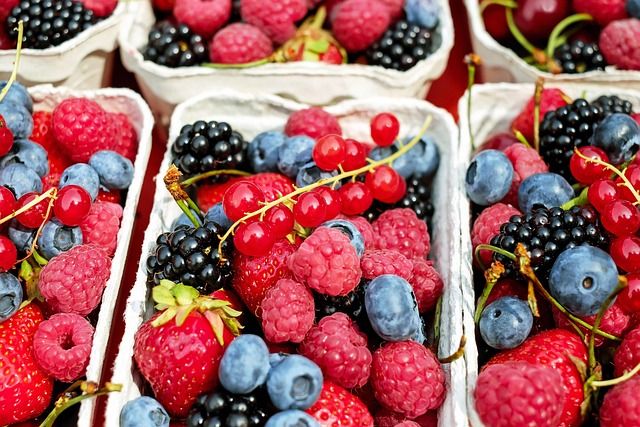
Fruits are super healthy, but yes, even healthy foods should be eaten in the right amount. Too little means you miss the benefits. Too much can affect your sugar levels.
So, here’s how much fruit is good for you:
1. 2 to 4 Servings a Day Is Just Right
- Most health experts suggest 2 to 4 servings of fruit per day.
- One serving =
➤ 1 medium-sized fruit (like an apple, banana, or orange)
➤ 1 cup of chopped fruit
➤ ½ cup of fruit juice (fresh, no sugar added)
So, in a day you can eat:
✅ 1 apple + 1 banana
✅ Or 1 mango + 1 cup papaya
✅ Or 1 orange + 1 cup watermelon
⚖️ 2. Balance Is the Key
- Don’t eat only fruits all day.
- Fruits are high in natural sugar, so balance them with vegetables, grains, and proteins.
- Fruits are best as snacks or part of breakfast, not as a full meal every time.
🚫 3. When to Be Careful
Limit fruit intake if:
- You have diabetes or blood sugar issues
- You’re on a low-sugar or keto diet
- You eat lots of dried fruits, which are high in sugar
4. Trust Your Body
- If fruits make you feel good, energized, and satisfied – you’re eating the right amount.
- If you feel bloated, gassy, or get sugar crashes – maybe you’re eating too much or too often.
🍋 Are Sour Fruits Good for You?
Yes, sour fruits are very good for your health! They may taste tangy or make you pucker up, but they are full of natural goodness that your body loves.
Here’s why sour fruits are healthy and how they help you:
🍊 1. Rich in Vitamin C
Most sour fruits like oranges, lemons, amla (Indian gooseberry), grapefruit, and tamarind are packed with vitamin C.
What Vitamin C does:
- Boosts your immune system
- Helps fight colds and infections
- Keeps your skin glowing and healthy
- Helps in wound healing
- Acts as a powerful antioxidant
2. Good for Teeth and Gums (In Small Amounts)
Sour fruits (especially citrus) help keep your gums strong and prevent bleeding gums.
But remember:
👉 Don’t eat too many sour fruits at once
👉 Rinse your mouth with water afterward
Why? The natural acid can harm your tooth enamel over time if you don’t clean your mouth.
3. Great for Digestion
Fruits like lemon, amla, and tamarind help in:
- Producing more stomach juices
- Improving digestion
- Reducing gas and bloating
So if your stomach feels heavy or uncomfortable, a little sour fruit or warm lemon water can help.
4. Help in Detoxifying the Body
Sour fruits help your liver and kidneys work better by flushing out toxins from your body. They are natural cleansers and keep your internal system clean.
5. Make Your Meals More Enjoyable
Adding a slice of lemon or some tamarind to your food:
- Brings out the flavors
- Reduces the need for extra salt
- Makes healthy food tastier and more fun to eat
⛔ When to Be Careful
Sour fruits are great, but eat them in moderation if:
- You have acid reflux or ulcers – too much sour fruit can increase acidity
- You have sensitive teeth
- You’re taking certain medicines – always check with a doctor
🍉 Are Watery Fruits Good for You?
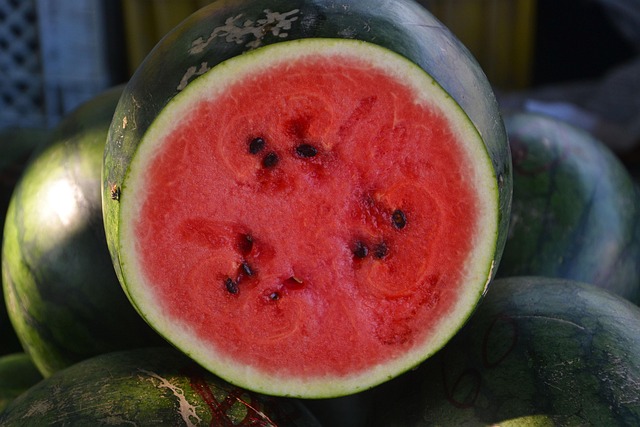
Yes – watery fruits are very good for your health! They are refreshing, hydrating, and packed with nutrients that help your body stay cool, clean, and energetic.
Let’s look at why watery fruits are a smart choice for your diet:
💧 1. Keep You Hydrated
Watery fruits like watermelon, cucumber, muskmelon, oranges, and strawberries are full of natural water.
Why this helps:
- They keep your body hydrated in hot weather
- Help you beat tiredness and dryness
- Prevent dehydration, especially in summer
Instead of sugary drinks or sodas, eating watery fruits is a natural and healthy way to stay fresh.
2. Help Clean Your Body (Detox)
Watery fruits help flush out toxins from your system.
- They support your kidneys and liver
- Make you urinate more, which removes waste
- Keep your skin clear and glowing
Think of them as natural cleaners for your body!
3. Easy to Digest and Light on the Stomach
Watery fruits are soft, juicy, and full of fiber.
- They don’t burden your stomach
- Help in smooth digestion
- Prevent constipation and gas
Great to eat when your stomach feels heavy or upset.
4. Boost Immunity and Energy
Many watery fruits have:
- Vitamin C (like oranges and kiwi)
- Antioxidants (like watermelon and berries)
- Natural sugar for energy without harmful effects
So they protect you from illness and give a fresh energy boost.
5. Help with Weight Loss
Watery fruits are:
- Low in calories
- High in water and fiber
- Make you feel full and satisfied
This helps you avoid overeating and supports healthy weight loss naturally.
🌞 6. Perfect for Hot Weather
In summer, your body loses water through sweat. Watery fruits help:
- Cool your body down
- Prevent heatstroke
- Replace lost fluids
That’s why fruits like watermelon and cucumber are so popular during the hot season!
7. Good for Skin, Hair, and Gums
Because of their high vitamin and water content, watery fruits help:
- Keep skin soft and glowing
- Strengthen hair and nails
- Support healthy gums and teeth
🍎 Is It Good to Eat Seasonal Fruits in the Off-Season?
Sometimes we find mangoes in winter, or strawberries in monsoon — but is it okay to eat these off-season fruits?
The short answer is:
👉 Yes, you can eat them — but it’s not always the best idea.
Let’s understand why:
🌱 1. Nature Gives Us What We Need, When We Need It
Seasonal fruits grow naturally in a particular season for a reason.
They are fresh, full of nutrients, and match your body’s needs at that time.
For example:
- Watermelon in summer – keeps you cool and hydrated
- Oranges in winter – rich in vitamin C to fight colds
- Mangoes in summer – provide energy during hot days
➡️ So eating them in their right season gives you the maximum benefit.
2. Off-Season Fruits Are Often Artificially Grown
To grow fruits in the wrong season:
- Farmers may use chemicals, cold storage, or artificial ripening
- These fruits look fresh but may lack real taste and nutrients
- Some may even contain harmful residues if not handled properly
So yes, they’re available, but they may not be as safe or healthy as seasonal ones.
🍓 3. They Often Travel Long Distances
Off-season fruits are often imported or transported from faraway places.
- They are picked before they fully ripen
- Stored in cold warehouses for weeks
- Treated to look fresh, but may have lost natural nutrition
So the fruit may look perfect, but its quality is not the same as fresh local fruit.
💸 4. They’re Expensive Too!
Since they are rare in the off-season:
- The cost is usually much higher
- You may pay more and get less nutrition
That’s not a great deal for your health or your wallet.
5. If You Still Want to Eat Off-Season Fruits…
You can eat off-season fruits once in a while, just be mindful:
- Wash them very well
- Try to buy organic or trusted sources
- Avoid fruits that look too perfect or have a chemical smell
- Don’t eat them too often – make them an occasional treat
💡 Best Advice: Stick to Seasonal and Local Fruits
- They are fresh, affordable, and nutrient-rich
- They support your body’s natural needs for the season
- They help local farmers and reduce pollution from transport
Eating with the seasons is the natural and healthiest way to enjoy fruits 🍊🍇🍌
Conclusion: Nature Knows What’s Best for You
Seasonal fruits are not just tasty — they are nature’s way of taking care of your body. They grow at the right time to match your body’s seasonal needs. Whether it’s water-rich fruits in summer to cool you down or vitamin-rich fruits in winter to boost your immunity, every season brings something special and helpful.
They are:
- Fresher
- More nutritious
- Better for digestion
- Free from heavy chemicals (if local and natural)
- Affordable and eco-friendly
By eating fruits that are in season, you give your body the best chance to stay healthy, strong, and in balance with nature. So next time you visit the market, look for what’s in season — your body will thank you for it! 🍎🍊🍇
Pingback: Health Benefits of eating Fruits know 10 tips in easy way
Pingback: Best FruitsHealth Benefits of Eating Fruits - HEALTHFLUTE